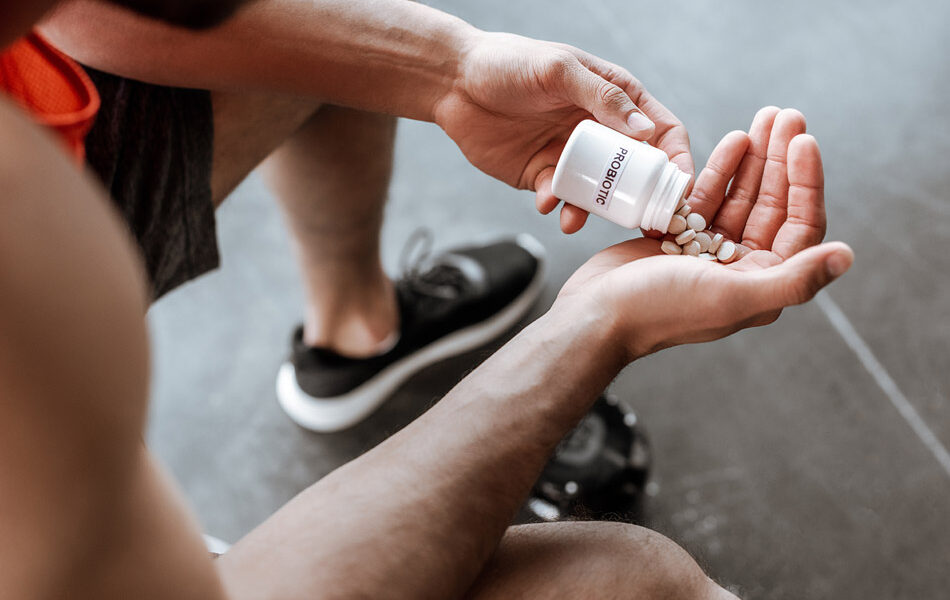Probiotics on an Empty Stomach: Are There Any Benefits?
Probiotics are a popular supplement these days, but should you take them on an empty stomach? To find out more about taking probiotics on an empty stomach and whether it can benefit you, check out the rest of this article.

Probiotics are living microorganisms that can be found in many types of fermented foods, like sauerkraut and kimchi, as well as in supplement products.
Many people choose to take these supplements to add beneficial bacteria to their gastrointestinal tract and support better digestive health. Is there a good time to take probiotics, and can you take them on an empty stomach?
In this article, we’re going to take a look at whether or not you should take probiotic supplements on an empty stomach and what happens if you do. Take a look below to find out more.
Probiotics on an Empty Stomach: Is It a Good Idea?
Yes, taking probiotics on an empty stomach is a good idea in most cases. While many manufacturers recommend different things, it is best to take probiotics about 30 minutes before food or at least 2 hours after food.
This is so that the beneficial microbes can reach the gut intact and get to work. In fact, there is evidence that taking these supplements just after food can reduce the number of probiotic bacteria that actually reach the gut.
Some manufacturers of probiotic supplements recommend taking them with food since some strains may not survive in the low pH of stomach acid. However, the lactobacillus strains, which are most commonly used in supplements, are more resistant to low-pH environments and will likely survive.
In addition, the stomach begins producing more acid when you eat to digest the food, meaning that the best time to take these supplements is before eating to avoid lower-pH environments.
Generally, it is best to follow the guidance from the manufacturers of the probiotic supplements you are taking.
The timing of your probiotic supplementation does not have as much impact as consistency. Taking your probiotics daily can ensure you continue to reap the health benefits of taking them.
What Happens if You Take Probiotics on an Empty Stomach?
Taking these dietary supplements on an empty stomach reduces the amount of time it takes for the probiotic bacteria to reach the gastrointestinal tract, making them more effective. Taking them while your stomach is empty is a good idea, but it is important to note that most manufacturers suggest eating something within 30 minutes of taking probiotics.
Ensuring that you eat after taking your probiotic supplement helps to get the healthy gut bacteria into your intestines as quickly as possible. Research suggests that it is best to take the supplement just before eating a meal containing at least some fats for them to be the most effective they can be.
Can Taking Probiotics on an Empty Stomach Make You Nauseous?
When you begin probiotic supplementation, there may be an increase in stomach acid production, which results in users feeling nauseous. Generally, these symptoms are temporary and will pass after your body gets used to the supplements.
If you continue to feel nauseous after a few weeks of taking your probiotics, there is a possibility you have an underlying condition known as SIBO. Small intestinal bacterial overgrowth (SIBO) is caused when gut bacteria grow in the small intestines instead of the large intestines and has many unpleasant symptoms.
This leads to many side effects, including nausea. If you suspect you may have it, you should speak with a doctor about possible treatments.
Some manufacturers also suggest taking your probiotic during mealtimes rather than before. While this can relieve nausea, it may also reduce the effectiveness of your probiotic. If you choose to take your probiotics after eating a meal, consider waiting at least 2 hours afterward to ensure digestion has slowed back down.
It is important to note that the initial stages of probiotic supplementation can come with a few side effects. These include excess gas and bloating, looser stools, or a change in bowel regularity. These symptoms should dissipate once your body adjusts to the supplements, but if it doesn’t, speaking with a health professional may help you to find a better supplement for your body.
Should Probiotics Be Taken With Food?
You can take your probiotic supplements with food, and if the probiotic manufacturers suggest this, then follow their guidance. While many probiotics work best when taken just before a meal, all strains behave differently. For this reason, you should always do as advised on the packaging.
When you take probiotics to boost the health of the digestive system, the main aim is to get the bacteria into your intestines while it is still alive. Digestion inhibits this, so probiotics can be taken before or with food, but never after.
A Word From a Nutritionist
Probiotics are taken by many people worldwide to boost gut health, reduce harmful bacteria, decrease digestive symptoms, and improve immune function. In addition, some people with conditions like ulcerative colitis and irritable bowel syndrome may take a supplement to manage the symptoms of their condition.
While there is a lot of debate about how probiotics can survive in the acidic environment of your stomach, most strains are actually resistant to the low pH and survive much harsher conditions further down your digestive system.
Contrary to popular belief, the timing of your probiotic is much less important than consistency. While you can debate over when you should and shouldn’t take them, the most important thing is that you do take them each and every day.
Conclusion
Probiotic supplements can be taken on an empty stomach. In fact, most research suggests that it is best to take them when your stomach is empty so that they can reach the gut intact.
If you feel nauseous when taking them this way, consider taking them 2 hours after a meal instead.

















































 Select your language:
Select your language: 








